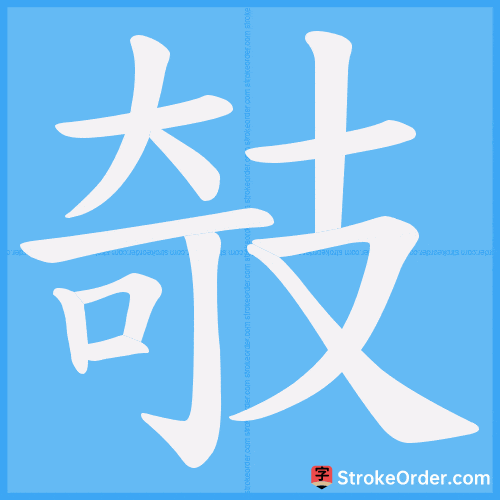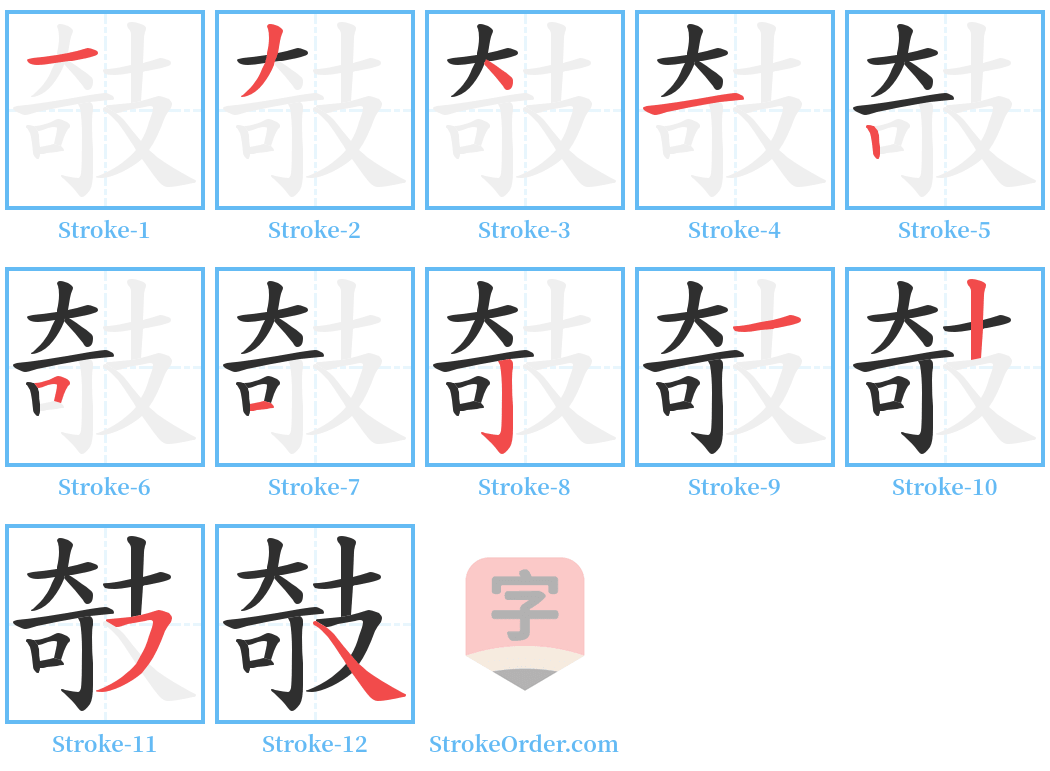攲 Stroke Order
Animated Stroke Order of 攲

Stroke Order Diagrams for 攲

Information of 攲
Pinyin
qī、 yǐ、 jī
Radical
支
Strokes
12 strokes
Usage
★★
Definition
攲 [qī]
1. 倾斜。
To slant or incline.
Example: “~帆侧柁入波涛。”
(The sail leans sideways into the waves.)
2. 古通“倚”,斜靠着。
In ancient usage, synonymous with “倚,” meaning to lean against or slant.
Example: “~枕听鸣蛙。”
(Leaning on a pillow listening to the croaking frogs.)
3. 持箸取物。
To hold chopsticks to pick up objects.
4. 引用:
《荀子·宥坐》:孔子观于鲁桓公之庙,有欹器焉。
(In "Xunzi", it states: Confucius observed an inclined vessel at the temple of Duke Huan of Lu.)
5. 例句:
又如: 攲器(倾斜易覆的器具。古指改装过的汲水陶罐);
(For example: "攲器" refers to vessels that are inclined and easy to topple; in ancient times, it referred to modified water-drawing pottery.)
攲斜偃蹇(倾斜歪曲);
(To be slanting and distorted.)
攲侧(倾斜);
(To lean or incline.)
攲案(一种可以躺着看书的斜榻。相传最早为曹操所作)
(The "攲案" is a type of slanted couch for reading, which is said to have been designed by Cao Cao.)